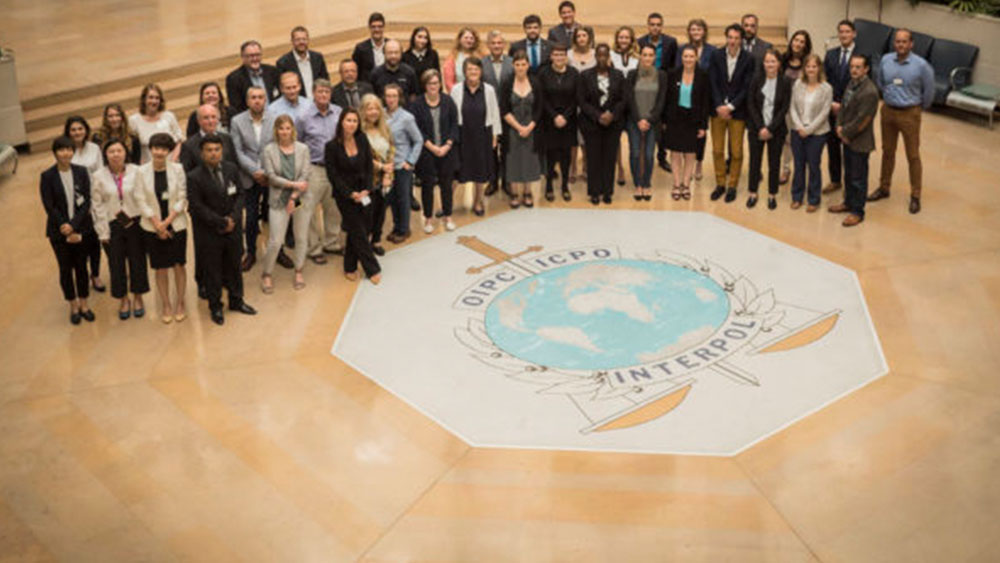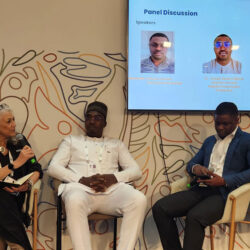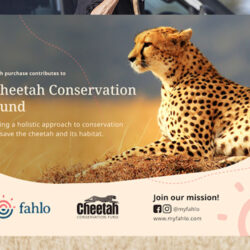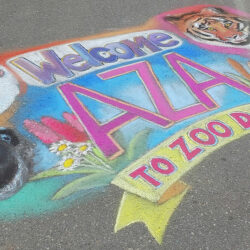Giving the Cheetah a Louder Voice
-

- by Patricia Tricorache July 2, 2018

Since we at CCF became aware of the very worrisome volume of live cheetahs being smuggled out of the Horn of Africa for the illegal pet trade 13 years ago, we endeavored to learn as much as we could about the trade. We knew we had to prove that there was a problem and began collecting data that would serve to demonstrate that a problem existed. Our data was crucial to raise the issue in international forums, and led to the inclusion of illegal cheetah trade in the agenda of the CITES’ 16th Conference of the Parties in 2013. Since then, CCF has made every effort to form partnerships. Our objective: to make sure that the cheetah has a voice…the louder, the better.
The illegal trade in animal parts, be it elephant ivory, rhino horn, pangolin scales or tiger bones, has typically attracted public attention because the images of dead animals are truly heart racking. However, little is known about the conservation impacts of live animal trafficking, whether it is for the pet trade, private zoos or entertainment. In the case of cheetahs, once a small cub has been removed from the wild, the odds of it being able to return and live a wild-cheetah life are nearly zero. Even if trained to hunt, orphaned cubs will not have the skills that only a cheetah mother can teach them, such as learning who their enemies are, or even how to find water or establish a home range. Furthermore, as cubs removed from the wild illegally are taken at such young ages, 6 to 10 weeks on average, they must be hand raised. Consequently, they become habituated to humans and, if released, might approach human settlements, creating opportunities for human-wildlife conflict.
At CCF, we believe that in addition to caring for cheetahs who get confiscated from the trade, it is crucial to end the trafficking, and must focus on one key aspect: raising global awareness about the threats that the illegal trade in live cheetahs poses to the survival of the species, and we can’t do this alone. For this reason, we strive to be an active participant at local, national and international forums, which allows us to share information and form collaborations. We must focus on every sector that can possibly take steps against wildlife trafficking, including not only governments and international (IGOs) and non-governmental organizations (NGOs). We strive to reach out to the private sector as well. We explore options such as having banks take a more active role against illegal wildlife trade (IWT) through the monitoring of suspicious financial transactions, and we spend endless hours scanning the internet to search marketplaces and social media to identify advertisements that offer live cheetahs for sale.
Our cyber-research has given us an opportunity to meet other concerned stakeholders and opened us doors to speak for the cheetah. On June 5-6, I was privileged to participate in a Cyber-Enabled Wildlife Crime workshop hosted by INTERPOL and our long-time partner, the International Fund for Animal Welfare (IFAW) in Lyon, France. The importance of this workshop cannot be emphasized enough, because it included participants spread across all relevant sectors: online technology companies, enforcement agencies, policy makers/politicians, NGOs, and academia. I learned so much about tech companies like eBay, Etsy, Facebook, Google, and Instagram; from IGOs like ICCWC partners INTERPOL, CITES and the UNODC (United States Office for Drugs and Crime), and even from CCF’s sister NGOs, including IFAW, WCS (Wildlife Conservation Society) and WWF/TRAFFIC.
Through this workshop, each sector had the opportunity to share insights about what we do, how, and why. We were also able to discuss our needs, and more importantly, potential opportunities for cross-sector collaboration and best practices. Understanding the obstacles we each face when doing our jobs is crucial. These obstacles can go from privacy and security concerns, to inadequate national laws and the sheer number of animal and plant species (over 30,000) that are listed in the CITES appendices, many of which are traded illegally through the Internet, while some can be traded legally under specific circumstances.
At the end of the two days, we all left with a better understanding and willingness to improve communications and collaboration, a need we all identified. We also agreed that there is a need for more information sharing across all sectors, and that this information can contribute to raising awareness among consumers as well as among management across the sectors. Finally, we all agreed that we must make a more efficient use of available resources, which are limited. The work has just started.
Immediately following the INTERPOL workshop, I took a quick detour to meet up with colleagues from the Horn of Africa (HoA) attending a meeting in The Hague. The HoA is of major concern when it comes to fighting illegal cheetah trade, as many wild cheetahs are taken from Ethiopia and trafficked across Somaliland towards the Arabian Peninsula. This quick visit allowed me to follow up on the establishment of the Horn of Africa Wildlife Enforcement Network, or HAWEN, which will be a key partner in our efforts in that region. HAWEN was established last November with the support of key partners that include IFAW, the IUCN National Chapter of the Netherlands, and the Dutch government.
During both meetings, I reiterated CCF’s deep commitment to the fight against IWT, and our willingness to continue collaborating with every sector as our resources allow for it. Our goal is to ensure that the cheetah’s voice echoes through every person and institution we have an opportunity to meet.
Related Reading
-
September 2, 2025
A New Way to Follow the Fastest Cat on Earth -
September 27, 2024
Representing the Cheetah at the AZA Conference




